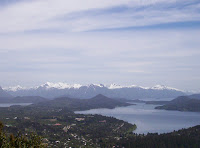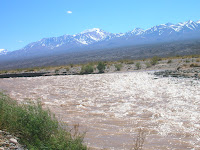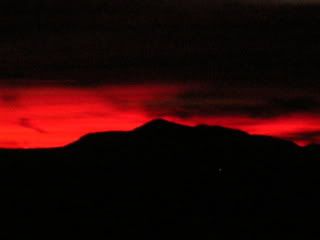A long, cramped ride
I attempt to find a position I can sleep in and put a good crick in my neck and shoulder from contorting in the seat. The AC is cranked way too high and I brought nothing warmer in my pack than my safari shirt. An old, somewhat befuddled, gentleman boards at some vague juncture midway up the coast and removes a styrofoam cup jammed in the vent, the only thing separating me from hypothermia. I suffer through it cursing the blameless codger and finally stuff my hat inside the hole to quell the flow.
A sublime sunset looms out my window with clouds lit up like embers. Storms rage in the distance, every crack of lightning visible over the fathomless pampa. We catch up with the rain, and a rivulet of water flows through the bus.
The old man leaves, mercifully, in Bahia Blanca, about the time to sleep. In the morning we pass thousands of head of cattle and almost at the point where the estancias end, Buenos Aires begins and it feels like a kind of home. Its warm, but not as stifling as I feared. I check back into Che Lagarto and in my room are naked people in bed and it’s a strange sort of symmetry with my very first night in the city. I stop at a café and eat more pizza and then sit down for a very nice dinner in San Telmo. I return to the hostel and start catching up on sleep.
of cattle and almost at the point where the estancias end, Buenos Aires begins and it feels like a kind of home. Its warm, but not as stifling as I feared. I check back into Che Lagarto and in my room are naked people in bed and it’s a strange sort of symmetry with my very first night in the city. I stop at a café and eat more pizza and then sit down for a very nice dinner in San Telmo. I return to the hostel and start catching up on sleep.






























